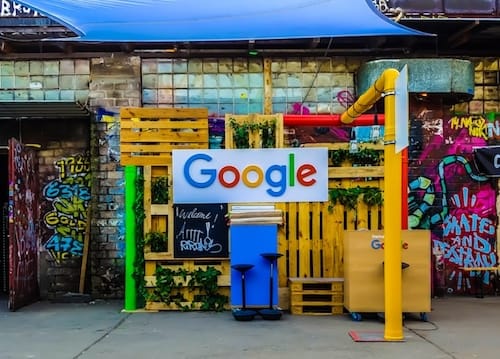From the bustling alleys of Bangkok to the sprawling suburbs of Toronto, a quiet revolution is underway. Forget stethoscopes and waiting rooms – the primary point of contact for countless individuals seeking medical guidance is no longer a white coat, but a glowing screen. Google, the ubiquitous search engine, has become the doctor’s office for the digital age, with people in APAC and North America increasingly relying on it for every step of their health journey.
Googling Symptoms: The First Line of Defense
Gone are the days of hushed murmurs and whispered inquiries. A nagging cough or an unexplained rash sends us scurrying to our smartphones, fingers furiously typing symptoms into the search bar. Studies show that in both APAC and North America, over 70% of adults research health information online. From self-diagnosis forums to symptom checker tools, Google offers a seemingly endless well of information, readily accessible at 3 am or noon.
Comparing Providers: Finding the Right Fit
But the internet’s role goes beyond simply diagnosing a sniffle. In areas with limited access to quality healthcare, like rural Thailand or remote Canadian towns, Google empowers patients to become informed consumers. Comparison websites, doctor reviews, and online appointment booking platforms allow individuals to meticulously research and choose the healthcare provider that best suits their needs and budget.
Doctor Credibility: Trusting the Source
In an age of rampant misinformation, verifying the doctor’s credentials has become paramount. Google Scholar serves as a trusted knowledge repository, allowing patients to delve into research papers and publications, gaining valuable insights into a doctor’s expertise and experience. This level of transparency, once unimaginable, is now democratizing healthcare, putting the power of informed decision-making squarely in the hands of patients.
But it’s not all sunshine and rainbows.
This reliance on Google comes with its own set of challenges. Misinformation is rampant, self-diagnosis can be unreliable, and the digital divide excludes those without access to technology. Healthcare professionals, alongside tech giants like Google, must work together to ensure responsible information dissemination and bridge the digital gap to provide equitable access to accurate health information for all.
Challenges:
- Misinformation: The internet is awash with inaccurate and outdated medical information. Self-diagnosis based on Google searches can lead to anxiety, misinterpretations, and even delaying seeking professional help for serious conditions.
- Quality control: Verifying the credibility of online sources can be difficult for non-medical professionals. Websites with no medical expertise can rank high in search results, further muddying the waters.
- Digital divide: Not everyone has equal access to technology or the skills to navigate it effectively. This can exclude vulnerable populations from accessing reliable health information.
- Cyberchondria: Excessive online health information seeking can lead to cyberchondria, a heightened fear of illness based on self-diagnosis of unlikely conditions. This can cause unnecessary anxiety and stress.
- Overreliance on technology: While online resources can be helpful, they should not replace personalized medical advice from qualified healthcare professionals.
Benefits:
- Empowerment: Online information gives patients more control over their health by allowing them to research conditions, treatment options, and providers before making informed decisions.
- Accessibility: The internet provides 24/7 access to health information, even in areas with limited healthcare resources.
- Support: Online communities and forums connect people with similar health concerns, fostering a sense of belonging and providing emotional and informational support.
- Transparency: Patients can now research a doctor’s credentials, qualifications, and patient reviews, leading to greater transparency and informed decision-making.
- Preventative care: Online resources can provide information on healthy lifestyles, preventative measures, and early detection of health problems, encouraging proactive healthcare practices.
So, what does this mean for the future of healthcare?
The days of the doctor as the sole arbiter of medical knowledge are numbered. Google’s role as a healthcare gateway is undeniable, and its influence is only set to grow. This new landscape demands greater collaboration between tech companies, healthcare providers, and patients to navigate the challenges and maximize the opportunities presented by this digital revolution. Only then can we ensure that everyone, from the bustling streets of Manila to the quiet towns of Montana, has access to reliable, personalized healthcare in the palm of their hand.
Are you a clinic or healthcare professional looking to reach more patients and build stronger relationships in the digital age? Send me a message today to learn how our healthcare marketing consulting services can help you achieve your goals.
Together, let’s shape a future where technology empowers patients and healthcare providers work in harmony to deliver the best possible care.
Get the latest news from Evolve Digital Group’s company Facebook by following us on social media: @evolvedigitalgroup.
Read more related blogs: All Blogs

